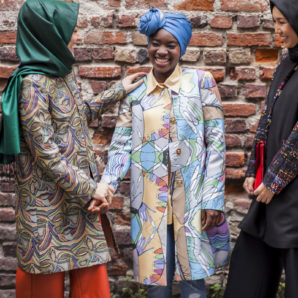
Turkish Muslimism: A New Islamic Engagement with Modernity
The engagement between modernity and religion is often presented through the use of binaries: secular and religious, public and private, liberalism and fundamentalism. But in a new volume, Muslimism in Turkey and Beyond, Turkish sociologist of religion Neslihan Cevik explores forms of religious engagement with modernity that resist these crude divisions, pointing instead to the possibility of a hybridity that blurs the lines between categories often viewed as diametrically opposed and mutually exclusive. Read the full article »
Read More →
The engagement between modernity and religion is often presented through the use of binaries: secular and religious, public and private, liberalism and fundamentalism. But in a new volume, Muslimism in Turkey and Beyond, Turkish sociologist of religion Neslihan Cevik explores forms of religious engagement with modernity that resist these crude divisions, pointing instead to the possibility of a hybridity that blurs the lines between categories often viewed as diametrically opposed and mutually exclusive. Read the full article »
Read More →